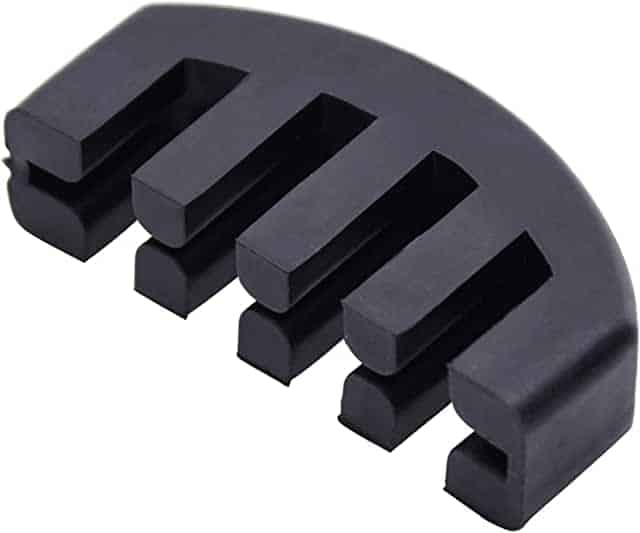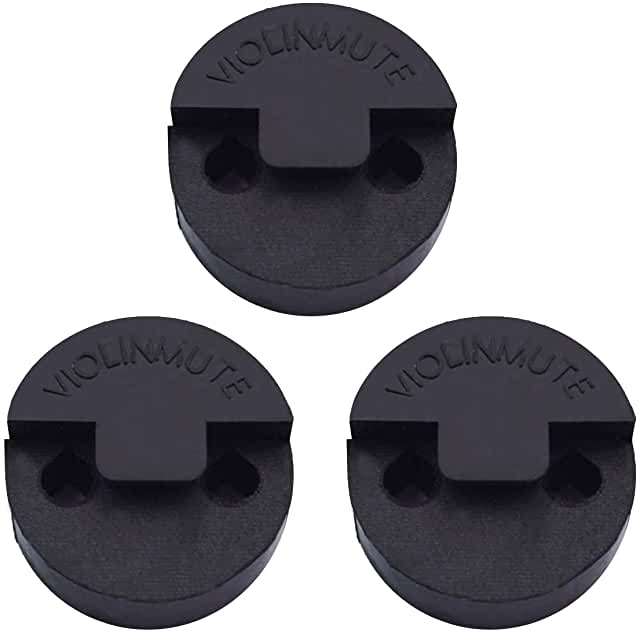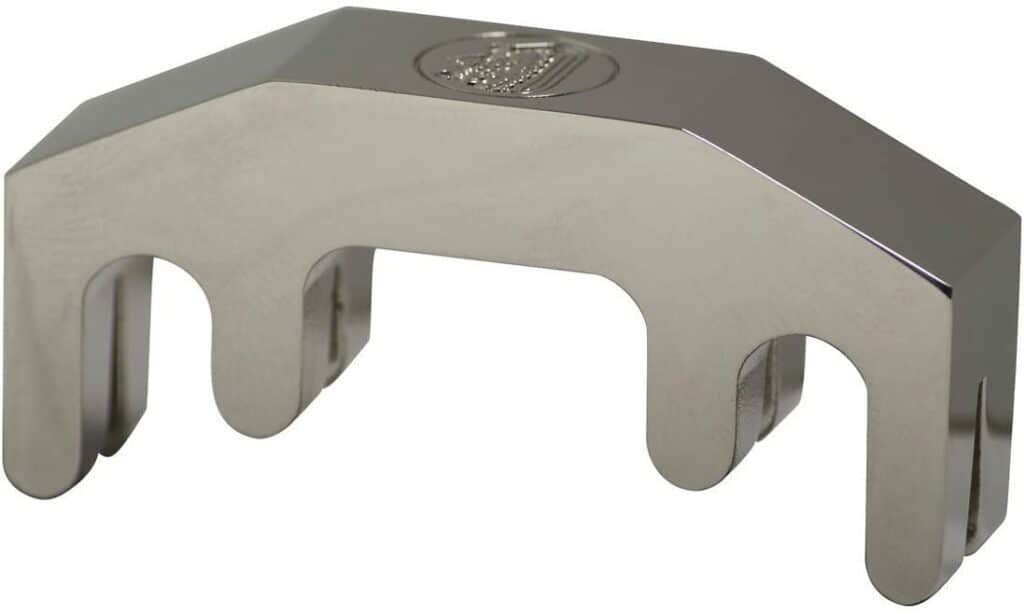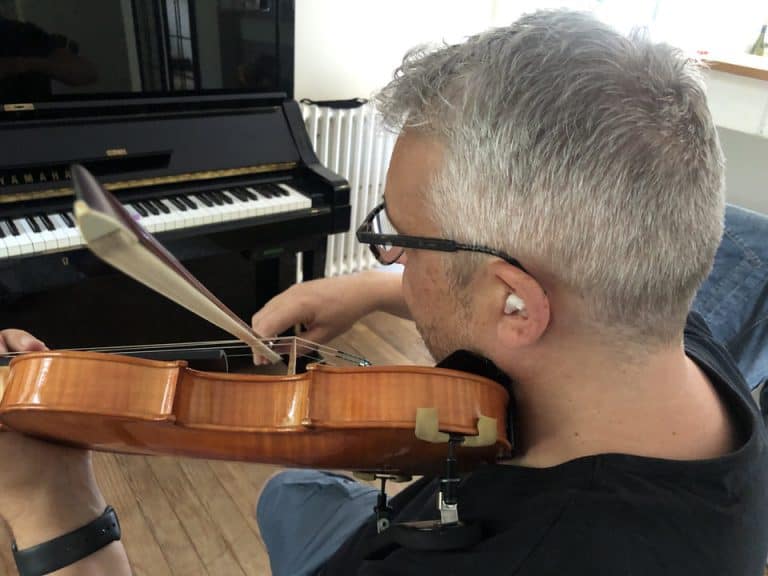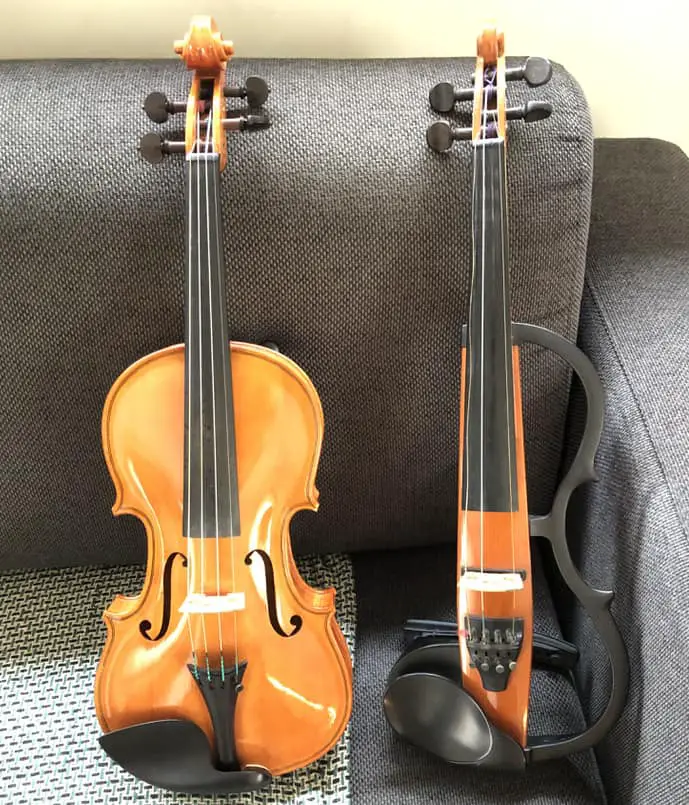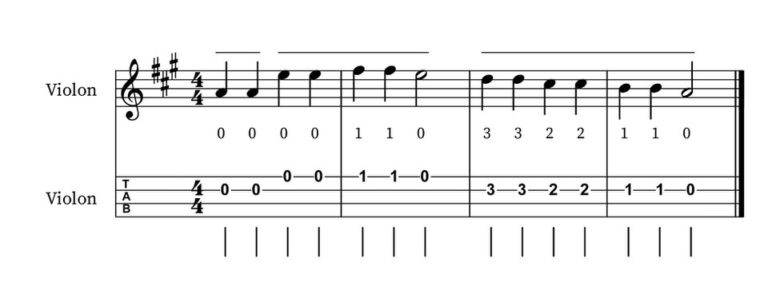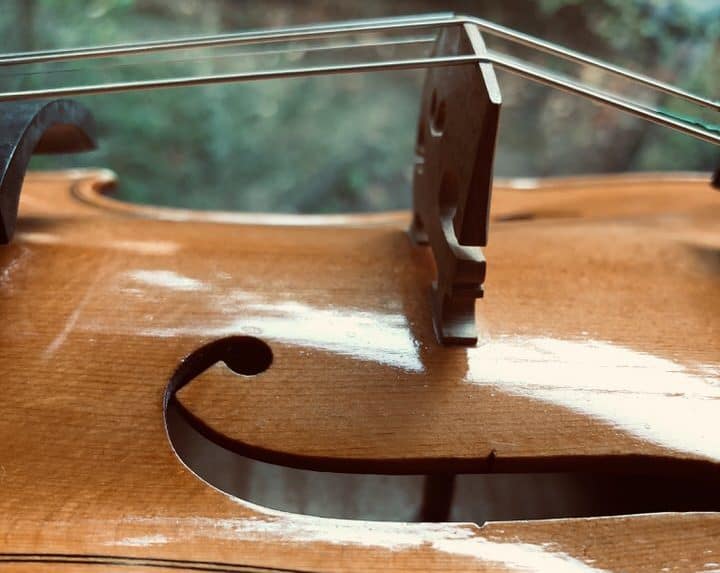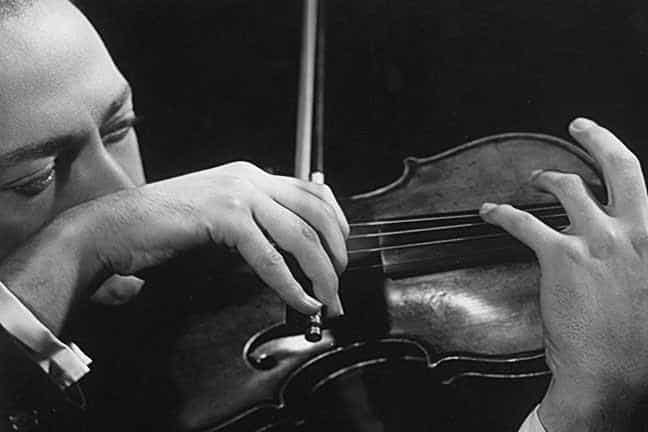Are Electric Violins Quiet, or perhaps even Silent? (With a dB Chart)
As lovely as the violin sounds, its volume has been the detriment to many players’ confidence, and even consideration, of picking the instrument up for a long time. It’s no wonder that electric violins have become so popular over the years considering that fact. Still, can an electric violin completely eradicate that problem?
Electric violins are built without a hollow resonating body. There are really quieter than acoustic violins by on average 70%. If you want to play quietly, you need to choose a solid-body violin, perfect to practice in a room. You will still be able to add a mute if you want to be even quieter. But electric violins are not silent.
| Mute | Electric | Sound | Remark |
|---|---|---|---|
| Natural acoustic | – | 90 dBA | Especially loud with a good soloist |
| Tourte Mute | – | 80 dBA | Can be loud, with less high frequencies. Good to perform music but not to practice quietly |
| Big Rubber Mute | – | 78 dBA | Still with medium to low frequencies. Not good for a real calm environment |
| Metal Mute | Hollow Body electric violin | 70 dBA | Less medium and low frequencies, quieter for the neighbors |
| – | Solid Body electric violin | 65 dBA | Quiet instruments, especially due to the absence of lower frequencies that go through walls and doors |
| – | Yamaha Silent violin, NS Violins | 60 dBA | High-pitched sound that doesn’t go through walls |
Electric violins are as silent as electric guitars are (unplugged). The first line-up of electric violins from Yamaha, the Silent Violin, spread the idea of it being silent. But it isn’t the case. Yamaha’s electric violins are one of the quieter but can be heard. And to amplify something, you have to have something in the first place. And, without body, almost, the string still vibrates and gives a sound. But how loud? Can I practice in a hotel or while my baby sleeps? Listen to compared sounds below.
Can you hear an electric violin? Is it loud?
Let’s hear and compare an electric violin and an acoustic one
First: let’s hear a comparison between an electric violin and an acoustic one. I have put the microphone 3 feet away and recorded the same notes on each instrument for you to compare. In the other room, my neighbor could enjoy the acoustic violin concert, but couldn’t hear the electric one, because the tiny high-pitched notes couldn’t pass through the walls.
Why are acoustic violins louder and project their sound further?
If you’re hoping for a completely silent instrument, you’re probably not going to find one anywhere. Not even an electric violin will achieve total silence. Even if the bulk of their sound production relies on electronics, at the end of the day, they’re (usually) wooden constructs with a lot of energy reverberating through them. No amount of technological what-not will change the way sound projects from such a device.
Don’t be discouraged, however. Even if an electric violin can’t achieve total silence, it will generally be by far much quieter than its acoustic counterpart, as even rigorous electric violin playing is likely to produce a comparable volume level to an acoustic with a decent mute on it. If you take measures to maintain your electric violin’s volume in combination with its already inherently lower sound profile, you’ll be achieving much quieter practice volumes than anything you could hope to achieve with an acoustic violin.
So, electric violins do not have the hollow construction that makes the body vibrate and project sound like an acoustic violin. Usually, the sound is measured from 65 to 75% quieter than the one of a conventional violin.
An acoustic violin, no matter how you cut it, will be louder. Even with a quality mute, more often than not, an acoustic violin will produce more sound than an electric violin. Acoustic violins are great, but if you’re shooting for silent, the electric violin is a much safer bet. And hey, bonus points for being able to use headphones with an electric violin, unlike an acoustic one.
Are electric violins quiet enough to be played at a hotel?
An electric violin will naturally (if we consider the pure acoustic construction of it) amplify the upper range of notes, the high spectrum. Consequently, it remains the frequencies that don’t go through walls. Remember: when you hear a distant party, you usually hear the bass, sub-bass, and bass drum, right? The treble parts don’t come through.
It is the same with electric violins. Yes, you will be able to play an electric (solid-body) violin in a hotel or a quiet environment. If someone listens at the door, yes he will clearly hear some soft violin being played. But in the hotel corridors, the other rooms, the upper floor, or the floor below, they will hear nothing. If you play in the middle of the night, don’t play too loud either. I have been extra cautious a couple of times by adding a mute to my Yamaha silent violin…
SO, for me, electric violins are quiet enough to be played in a hotel or in a quiet environment. It is almost impossible to play absolutely unnoticed, though, but it shouldn’t be a problem. The sound is so quiet, in the other room, that if there is the slightest noise, it will cover it up. It has disturbed no-one in my family.
As for babies sleeping, it of course comes to different types of character. But in my personal experience, the three of my babies and later children were not annoyed or woken up by the noise. On the contrary, they felt secured and slept better with me practicing in the background. That routine secured them. Now, they sometimes remember falling asleep to the violin sound. They asked for it; and when I wasn’t up to it, I had no excuse not to practice!
Silent violins with headphones: are they loud?
The cool thing about an electric violin, though, is that you don’t really have to worry about that once you plug your headphones in anyway. You may not be achieving the raw classic sound of an acoustic violin, but you’ll be playing as quietly or loudly as you would like to hear thanks to the native support for headphones. The ability to play through headphones provides a level of volume control acoustic violins simply cannot provide, albeit with its own variety of sacrifices.
That is why a silent electric violin is usually played with headphones on.
The lack of a sounding box, due to a hollow construction of the electric instrument, will deprive the sound of its body, its flesh.
You can’t have everything: a quieter sound which is of the same type. The unplugged sound of an electric violin is quieter but more metallic and higher-pitched.
Like with a mute, a violin constructed with a wooden beam, will cut out most of the tone range of the instrument, except the upper range, the high spectrum. The overtones will remain in an unbalanced spectrum of sound. This is when the headphones come into play: they give back a bit of sound “body”, that is to say, medium and bass. The sound becomes alive again. Some electric violins have an equalizer or at least a tone knob. This is where you get a richer sound to practice longer without boredom. Just add a tiny bit of reverberation and you’re all set.
In conclusion, the headphones will give you a better sound, with warmth and reverb, but won’t be at all needed to hear the electric violin.
Is an electric violin quieter than a violin with a mute?
Yes, electric violins are quieter than traditional acoustic violins with a mute. If we compare the intensity of sound, there is a clear difference, from louder to quieter, between:
- Acoustic violin played naturally,
- A simple mute, such as this Tourte style mute, usually kept on the violin in case needed. This mute softens the sound slightly, especially on the high spectrum, and is used in music when the composer requires it. It is loud enough to be heard in a concert (see Tchaikovsky’s violin concerto second movement);
- A big rubber mute. This mute is designed to practice your instrument. The sound is cut down. You will still be heard in the next room, but not a lot.
- A brass mute, otherwise called “hotel mute”. These kinds of mutes further cut the sound of the violin, with their weight they “mute” the sound furthermore. You will really be able to play in a quiet environment with these, but the sound will be still louder than a solid-body electric violin.
The quieter you will get is a Yamaha silent violin type of electric violin. It will be definitely quieter than an acoustic violin with a mute, even if it a metal mute. A mute (especially the metallic one) will cut out most of the tone range of the instrument, except the upper range, the high spectrum. Again, this is when headphones are interesting to mitigate that lack of tonal range.
What electric violin should I choose to be silent?
None… Although I have been pretty happy with my Yamaha electric violin. If you want to practice quietly for some time only, try a good brass practice mute, such this cheap one on Amazon, before you decide to buy an electric violin.
The electric violin will give you the advantage of being able to wear headphones that give a better and more pleasant sound compared to the harsh and dry sound of a practice mute. But there is no comparison, however, with the sound of a real acoustic violin in a cathedral, even if you can turn up the reverberation.
So, if you like the sound of an electric violin and plan to practice on one, then the Yamaha is the best serious choice even if there are other options that are cheaper.
The gear and products I use and recommend for my electric violin
First, If you want to hear your electric violin, you need to either use headphones, plug it into an amp, or an audio interface.
The small amp I use and recommend if you want to practice at home is the great Yamaha THR10 from the THR series. It is portable and not expensive, easy to use and set up.
If you want to record yourself or plug your violin into headphones, your laptop, or your phone, a good and cheap digital audio interface I can recommend is the iRig HD2, which is more and more affordable on Amazon.
I typically use Thomastik Dominant strings on my electric violin. They come quite cheap on Amazon considering their quality and sound. Synthetic core strings work well on Yamaha electric violins.
Lastly, I use mainly Dominant rosin as well on my electric violin, as it has been designed to go with Dominant Strings.
You can check out in detail all the stuff I have tested and used on my recommended product page where I go into more details.

